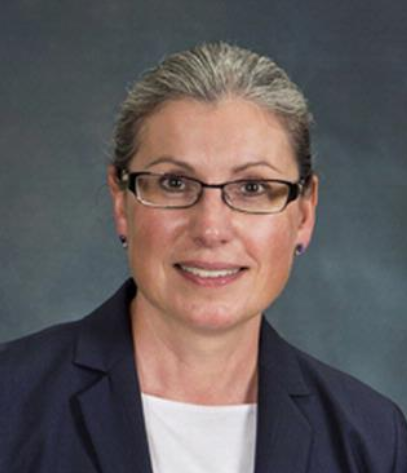Colloquia & Guest Speakers
Corneal Refractive Error Correction: injury and healing of a living lens
Dr. Krystel Huxlin
Monday, April 26, 2021
3:30 p.m.–4:30 p.m.
Zoom Virtual Setting
Abstract: The eye provides sensory input to the entire visual system and it relies on a transparent and properly-shaped cornea to do so. Our laboratory is unique in having developed a behaviorally fixating animal model in which we can reliably measure optical aberrations of the eye with the same degree of precision as in humans. We have used this unique animal model to study corneal damage and scarring - one of the major causes of blindness world-wide, and for which there is currently no effective treatment. In developed countries, laser refractive surgery is an important cause of corneal damage and scarring. By directly correlating optical aberrations, corneal structure and biology after laser refractive procedures in cats, we have gained unique insight into cell and molecular pathways that control key aspects of corneal healing, nerve regeneration and resulting changes in optical quality. Multidisciplinary studies like this are key for ultimately designing better ways of correcting refractive error, and treating corneal wounds. They were instrumental and motivational for our development of LIRIC (in concert with Wayne Knox and Jon Ellis), a non-ablative form of laser refractive correction. This method can be applied directly to the living cornea, the native lens, or in contact lenses and artificial intraocular lenses. Instead of ablating tissue or material to change its shape, LIRIC uses a focused femtosecond laser in a multi-photon regime, to locally alter the material’s refractive index. This customizable method appears to cause no corneal scarring or long-term detrimental effects to ocular health. As such, it opens up a new area of theoretical investigations into corneal lens biology related to laser-tissue interactions, and a whole new paradigm for vision correction in humans.
 Dr. Krystel Huxlin is the James V. Aquavella Professor and Associate Chair for Research in the Department of Ophthalmology and Flaum Eye Institute at the University of Rochester Medical Center. She also serves as the Associate Director of the Center for Visual Science and holds secondary appointments in the Institute of Optics, the Department of Neuroscience and the Department of Brain & Cognitive Sciences. Dr. Huxlin earned her bachelor’s (1991) and doctorate (1994) degrees in neuroscience at the University of Sydney, Australia. She performed postdoctoral work with Drs. William Merigan and Tatiana Pasternak in the Center for Visual Science before joining the faculty of the Department of Ophthalmology at the University of Rochester in 1999.
Dr. Krystel Huxlin is the James V. Aquavella Professor and Associate Chair for Research in the Department of Ophthalmology and Flaum Eye Institute at the University of Rochester Medical Center. She also serves as the Associate Director of the Center for Visual Science and holds secondary appointments in the Institute of Optics, the Department of Neuroscience and the Department of Brain & Cognitive Sciences. Dr. Huxlin earned her bachelor’s (1991) and doctorate (1994) degrees in neuroscience at the University of Sydney, Australia. She performed postdoctoral work with Drs. William Merigan and Tatiana Pasternak in the Center for Visual Science before joining the faculty of the Department of Ophthalmology at the University of Rochester in 1999.
Her work focuses on understanding how and to what extent visual functions can be restored after damage to the adult visual system. The holder of 9 patents and multiple grants from the National Institutes of Health, NY state and industry, she divides her attention between developing perceptual training strategies to induce vision restoration in stroke patients, and manipulating molecular substrates of corneal wound healing to prevent and treat scarring, and to restore optical quality following insults to the ocular surface. She is also part of the team that developed LIRIC - a non-ablative form of laser refractive correction, currently in development by a new local startup company (Clerio Vision).
The author of more than 80 scholarly articles and book chapters, Dr. Huxlin has received multiple awards, including the Research to Prevent Blindness Foundation’s Robert McCormick Special Scholars Award and the Lew R. Wasserman Merit Award. She has been included in Who’s Who in America, Who’s Who in Medicine and Healthcare, and Who’s Who of American Women for the past 15 years. She restarted the Rochester Chapter of the Society of Neuroscience and served as its inaugural president, past-president and then council member. This Chapter, which unites neuroscience interests locally, is now a successful component of the Rochester Neuroscience Graduate Program’s outreach towards the local community. In this context, Dr. Huxlin was selected to serve on a community advisory board to the Rochester Association for the Blind and Visually Impaired.
She has advised numerous undergraduates, 14 graduate students, 8 postdoctoral fellows, medical students, ophthalmology and neurology residents, and junior faculty, including as KL2 and K23 mentor. She has served on >30 PhD thesis committees, and is a long-standing member of the University of Rochester’s Medical Scientist Training Program admission committee and the Ophthalmology Residency admission committee. She also serves on the Neuroscience Graduate Program Executive Committee, as co-PI on the UR’s T32 training grant in Vision Science, and as one of 3 Ombudspersons for graduate students and postdocs within the Medical Center.
At the national and international levels, Dr. Huxlin is an active member of 7 professional associations, and served on the Program Committee of the OSA’s Fall Vision Meeting for 6 years (until 2019), first as Advisor, then as Chair of the Clinical Sciences Vision Technical Group.
